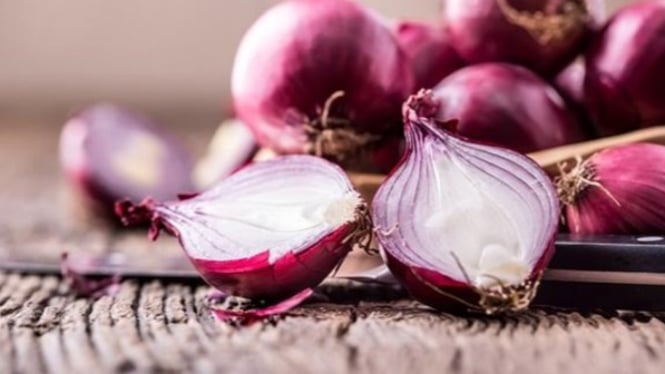Onions Price More Expensive than Meat in the Philippines
- U-Report
VIVA – The Philippines Department of Agriculture says local onions have recently become more expensive than meat. Local shallots are selling at 550 pesos per kilogram (around IDR 152,000).
A kilogram of beef costs up to 480 pesos (IDR 132,000) while a whole chicken costs 220 pesos (IDR 60,000). This is problematic as onions are a staple of the Filipino diet and one of the condiments of Southeast Asian cuisine.
Onions are in almost every Filipino dish, said Marilene Montemayor, a senior assistant at the World Bank focused on East Asia and the Pacific. Montemayor works in Washington, D.C. but is from the Philippines. "How can you taste the food without onions?"
Montemayor said that her family in the Philippines has been complaining about onion prices since Christmas. Onion prices in the Philippines have been far above the world average since the fall.
Ilustrasi bawang merah.
- U-Report
Last Friday, January 6, 2023, the Department of Agriculture approved a plan to import 21,060 metric tons of onions to address the national onion shortage and pull prices down, as quoted from the NPR site.
The imported yellow and red onions are set to arrive on or before Jan. 27, according to Department of Agriculture deputy spokesman Rex Estoperez, who said it is a "temporary" solution.
The shortage comes even as local growers produced 23.30 metric tons of onions in the third quarter of 2022, up from 22.92 metric tons during the same period in 2021, according to the Philippines Statistics Authority.
For the Philippines, which consumes around 17,000 metric tons of onions a month, importing onions is not anything new. It typically buys from China and other Southeast Asian countries.
According to Danilo Fausto, President of the Philippine Chamber of Agriculture and Food, some worries importing onions will affect local onion growers as they prepare for harvest, which typically begins in February and lasts till April.
Along with inflation, climate change is also a concern. As an island nation in the tropics, the Philippines is particularly at risk of rising temperatures and increased rainfall that disrupt crop growth.
"Developing countries are more vulnerable, lose more when these climate shocks hit, and have fewer resources to cope with the adverse effects of these shocks," said Philippine President Ferdinand Marcos Jr. at the Association of Southeast Asian Nations summit last November.




























